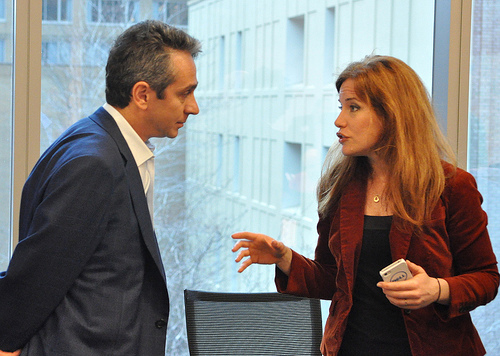Friction between business partners is common without a clear delineation of duties. Partners frequently have different ideas as to how to run the business and invest capital. Unfortunately, some businessmen seek to enrich their companies by committing fraud and tax violations. Whether an unwitting business partner is liable for that malfeasance depends upon the circumstances surrounding the people involved, the act, and even the company itself.
Privately-Held Companies and the Mens Rea
A wide array of federal crimes, including tax evasion and false claims made under the False Claims Act, require a certain level of intent to commit the act or knowledge that they were committing the act. Mens rea means “guilty mind” in Latin and is used to denote intent leading to culpability. Strict liability offenses do not require a mens rea, as intent is not required.
This means that individuals are generally not personally liable for the actions of their business partners, as the intent to commit the offense lies with the partner. Such actions can harm the company by resulting in regulatory backlash such as hefty fines. Since many business owners have not only an income interest but have also personally invested in the business, this can be painful to the partner. However, direct regulatory action against the innocent victim is unlikely.
Public Companies and the Sarbanes-Oxley Act
The matter becomes considerably more complicated if the company is public. Congress passed the Sarbanes-Oxley Act of 2002 after a series of accounting scandals around the turn of the century, most notoriously involving Enron and WorldCom. Sarbanes-Oxley imposed significant requirements upon publicly traded companies, most of which were aimed at ensuring the integrity of the company’s financial reports.
Among other requirements was the mandate for certain executives to certify the company’s periodic financial reports. The executives must certify that the statement contains no misstatements or omissions of any material facts pertaining to the company and its subsidiaries and fairly represents the financial condition of the company and its condition. Executives must also certify that the company has internal controls and that these controls have been audited in the last 90 days.
This means that if one company’s principal officers is involved in an ongoing fraud against the company and the other officers know about it, they are personally liable if they sign off on the corporate financial statements. Penalties range from a $1,000,000 fine to 10 years imprisonment or both per violation. This ensures that the controlling officers at a company cannot misrepresent their company’s financial position, including tax liability, without incurring personal liability.
Blowing the Whistle
Blowing the whistle on ongoing fraud is a personal decision with benefits and detriments. From a financial standpoint, whistleblowing activities aimed at a company in which one has a controlling interest are likely to reduce the value of that company as the government not only demands compensation but also high punitive damages. On the other hand, whistleblowers are generally entitled to a sizeable portion of the funds received from government actions. Additionally, from an ethical standpoint, fraud and misrepresentation are morally reprehensible activities that cost the taxpayers money.
Individuals interested in blowing the whistle on unlawful activity should contact an experienced false claims attorney such as Goldberg Kohn,Ltd. The whistleblowing process usually starts with a qui tam action served upon the Attorney General of the United States. The government will have the opportunity to pursue the claim itself or reject the claim, in which case the plaintiff may pursue it privately. In either case, the plaintiff is entitled to a percentage of the recovery.
No matter the source, federal investigations targeted at a company in which you own a sizeable stake are not fun. A prolonged investigation will take time and if the fraud is big enough, the ensuing regulatory action, lawsuits, and negative publicity against the company can destroy it. However, by failing to take action, executives who mistakenly went into business with a criminal condone such conduct. When a source of liability is discovered, the correct course of action is to stop all illegal activity and seek legal counsel immediately. Anyone who fails to do so may find that a lawsuit for a breach of a fiduciary duty is the least of his or her problems.
A former news journalist, Ann Bailey reports on this issue of ethics and consequences for anyone suspecting their partner of underhandedness. Goldberg Kohn,Ltd is an aggressive legal voice of protection for any client choosing to become a whistleblower to seek right from wrong in their business arena.
Photo Credit: http://www.flickr.com/photos/dellphotos/8430831912/


